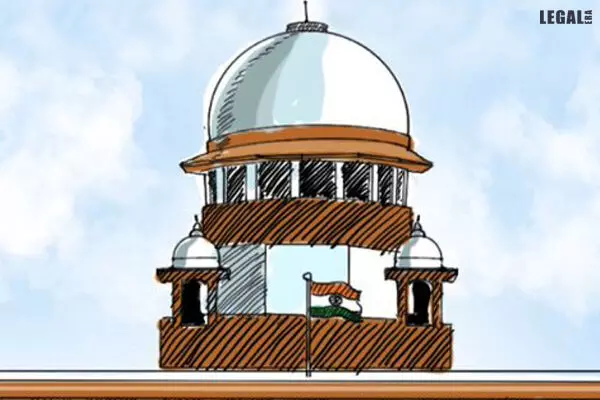- Home
- News
- Articles+
- Aerospace
- Artificial Intelligence
- Agriculture
- Alternate Dispute Resolution
- Arbitration & Mediation
- Banking and Finance
- Bankruptcy
- Book Review
- Bribery & Corruption
- Commercial Litigation
- Competition Law
- Conference Reports
- Consumer Products
- Contract
- Corporate Governance
- Corporate Law
- Covid-19
- Cryptocurrency
- Cybersecurity
- Data Protection
- Defence
- Digital Economy
- E-commerce
- Employment Law
- Energy and Natural Resources
- Entertainment and Sports Law
- Environmental Law
- Environmental, Social, and Governance
- Foreign Direct Investment
- Food and Beverage
- Gaming
- Health Care
- IBC Diaries
- In Focus
- Inclusion & Diversity
- Insurance Law
- Intellectual Property
- International Law
- IP & Tech Era
- Know the Law
- Labour Laws
- Law & Policy and Regulation
- Litigation
- Litigation Funding
- Manufacturing
- Mergers & Acquisitions
- NFTs
- Privacy
- Private Equity
- Project Finance
- Real Estate
- Risk and Compliance
- Student Corner
- Take On Board
- Tax
- Technology Media and Telecom
- Tributes
- Viewpoint
- Zoom In
- Law Firms
- In-House
- Rankings
- E-Magazine
- Legal Era TV
- Events
- Middle East
- Africa
- News
- Articles
- Aerospace
- Artificial Intelligence
- Agriculture
- Alternate Dispute Resolution
- Arbitration & Mediation
- Banking and Finance
- Bankruptcy
- Book Review
- Bribery & Corruption
- Commercial Litigation
- Competition Law
- Conference Reports
- Consumer Products
- Contract
- Corporate Governance
- Corporate Law
- Covid-19
- Cryptocurrency
- Cybersecurity
- Data Protection
- Defence
- Digital Economy
- E-commerce
- Employment Law
- Energy and Natural Resources
- Entertainment and Sports Law
- Environmental Law
- Environmental, Social, and Governance
- Foreign Direct Investment
- Food and Beverage
- Gaming
- Health Care
- IBC Diaries
- In Focus
- Inclusion & Diversity
- Insurance Law
- Intellectual Property
- International Law
- IP & Tech Era
- Know the Law
- Labour Laws
- Law & Policy and Regulation
- Litigation
- Litigation Funding
- Manufacturing
- Mergers & Acquisitions
- NFTs
- Privacy
- Private Equity
- Project Finance
- Real Estate
- Risk and Compliance
- Student Corner
- Take On Board
- Tax
- Technology Media and Telecom
- Tributes
- Viewpoint
- Zoom In
- Law Firms
- In-House
- Rankings
- E-Magazine
- Legal Era TV
- Events
- Middle East
- Africa
Supreme Court: Right to Property under Article 300A extends To Persons Who Are Non-Citizens of India

Supreme Court: Right to Property under Article 300A extends To Persons Who Are Non-Citizens of India
The Supreme Court, in a recent ruling, stated that the protection of the right to property under Article 300A of the Constitution extends to individuals who are not citizens of India. The bench comprising of Justices BV Nagarathna and Ujjal Bhuyan observed that "the term 'person' in Article 300-A encompasses not only legal or juristic entities but also individuals who are non-citizens of India. Furthermore, the term 'property' has a broad interpretation, encompassing not only tangible or intangible assets but also all rights, titles, and interests associated with property."
While making this observation, the bench concluded that an 'enemy property' under the Enemy Property Act, 1968, does not qualify for exemption from municipal laws as it is not vested with the Union Government.
The Supreme Court highlighted that the Parliament enacted the Enemy Property Act, 1968, to ensure uniformity regarding all enemy properties across the country. This legislation aims to protect, manage, and deal with such properties uniformly in accordance with the provisions of the Act.
Highlighting the objectives and intent behind the Act, the Supreme Court emphasized that Article 300-A of the Constitution, being a constitutional right to property, extends not only to legal or juristic persons but also to individuals who are not citizens of India.
The Supreme Court expressed concern that if the ownership of the property transfers from the enemy to the custodian, who then takes possession and administers or manages it, thereby making the union the owner, it would result in depriving the true owner, who may be an enemy or an enemy subject or firm, of their property. However, such deprivation of property cannot occur without the payment of compensation.
The court observed that, on consideration of the principles outlined in Article 300-A of the Constitution, the act of taking possession of enemy property by the custodian for administration purposes should not be construed as a transfer of ownership from the true owner to the custodian and, subsequently, to the union.



